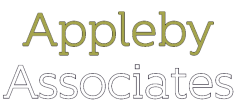Finding the fit – A simplistic approach to changing your career.
In order to make a successful career move, you need to find the fit between your personal needs, wants and desires and the needs of the hiring manager who is trying to fix a problem that the organisation has.
When an organisation puts out a job advert, regardless of the sector they operate in, the size of their business or the role function itself, generally their advert will be there for one of 3 reasons:
- They are looking for someone to fix X
- They are looking for someone to develop Y
- They are looking for someone to replace Z
The employer has a business problem that needs resolving. So, whilst your needs are important to you and will ultimately dictate what you will and won’t accept in a role, your needs are irrelevant to an organisation, until that organisation recognises that as a product, you will fix their problem first.
Your drivers for wanting to make a career change probably relate to wanting to find the right job in the right organisation with the right benefits, however, to make that change, you have to first recognise if you are credible for the role you are going for. You then need to convert your personal needs, wants and desires into a product that meets the need of the market and start marketing yourself as that product.
By taking this approach, you will be able to articulate what you have to offer and why somebody would want to hire you. You will be showcasing the benefits you bring in the form of transferable skills, personal attributes, technical competencies and possibly sector insights that provide solutions to the organisational business need.
Marketing is something that most people are not very good at because (a) they don’t know what they should be marketing themselves against, (b) they focus on marketing themselves as an individual, not a product and (c) their marketing material is positioning themselves as what they are, not what they want to be seen as.
In terms of your marketing material (CV, Capability Profile, LinkedIn Profile etc), when writing these, keep in mind that you are marketing a product first and foremost. Whilst the overall message is going to be the same, as a CV is different to a capability profile, which is different to a LinkedIn profile, they need to be written differently as they are designed to appeal to slightly different audiences. Think how any product is marketed on TV verses radio verses newspapers, they will all be promoting the same product but using different language and cues.
As you will be embarking on a marketing campaign, there will be a range of marketing messages you are going to need for different situations and scenarios. Here everything has to have a future focus. It may sound obvious, but no one is going to hire you for what you have done. It is what you are going to do for them, in the future that is going to matter. Yes, you need to dip into the past to prove, but you don’t want to dwell there; having done your research, you know what you are capable of. Now it’s a question of presenting that information to the new audience so that they can see the value you bring and why they should hire you.
In any interview situation, you’ve got to feel comfortable and confident, knowing you’re putting yourself on that front foot to be challenged, but crucially, having the information to sell yourself well in those situations.
Preparation is really important because that will allow you to concentrate on building rapport; strong eye contact and active listening, allowing you to interact and engage with those people, who along with yourself, will be deciding what happens next. There are three things you must demonstrate in that interview: impact, credibility and fit. If you tick those three boxes there is a good chance of an offer being made.
Having now demonstrated that you were the best person to meet the company’s needs, they now need to meet yours. They have a role, a culture, and a set of benefits, now is the time to negotiate to ensure that your needs are met.
If you found this article useful, you may find the following article interesting: “Salary Negotiation – Principles and Preparation.”
If you would like to find out more about this topic, contact us to book your free 90 minute personal 1:1 career consultation:

